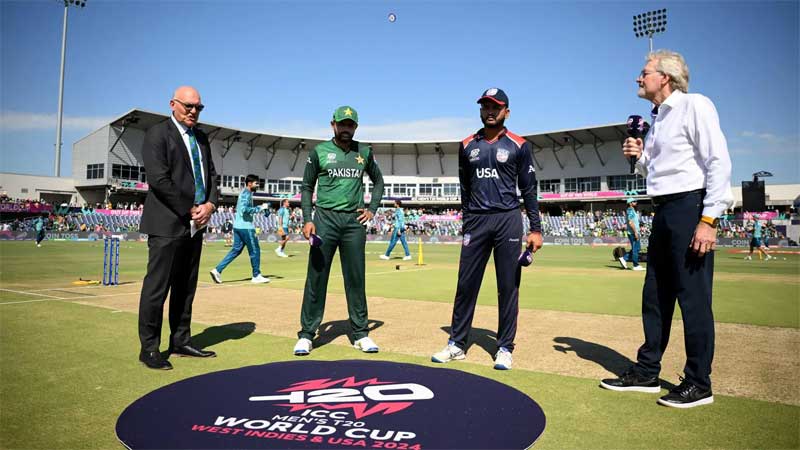My forefathers migrated from Kashmir long ago, and as an immigrant Kashmiri, I consider myself fortunate in many ways. Unlike my fellow Kashmiris, I do not face daily oppression, but I have witnessed the ongoing occupation and invasion since the day I was born. The issue of Kashmir is not new, yet it remains one of the most neglected conflicts globally. It rarely garners the media attention it deserves. The history between India and Pakistan over Kashmir is long and contentious, and I believe both countries share the blame for the current state of affairs.
Occupation is a crime regardless of where it occurs-whether in the West or the East, in a Muslim country or a non-Muslim one, in Kashmir or in Palestine.
Both India and Pakistan claim ownership over Kashmir and accuse each other of human rights abuses while perpetrating their own violations in the regions they control. This overt advocacy of human rights and democracy often serves as a political distraction, allowing both nations to divert attention from their wrongdoings. Pakistani officials report that India has killed more than 100,000 Kashmiri civilians, including 7,200 who died from custodial torture, and claim that 162,000 Kashmiris have been tortured. Once known as the “Valley in Paradise,” Kashmir has become a “Valley of Blood,” with its people enduring extreme oppression and casualties. Reports also allege that young girls have been subjected to sexual assaults and human trafficking by Indian armed forces.
Speaking of occupation, Palestine, too, has endured decades of occupation and suffering. Every year on May 15, Palestinians around the world mark the Nakba, or catastrophe, referring to the ethnic cleansing of Palestine in 1948. Between 1947 and 1949, Zionist military forces destroyed at least 530 Palestinian villages, killing about 15,000 Palestinians in a series of massacres. One of the most infamous was the Deir Yassin massacre on April 9, 1948, where more than 110 men, women, and children were killed by Zionist militias. Yet, this is not just history; it is a living reality. Since September 2023, Israeli forces have invaded Palestinian territories, demanding civilians vacate their homes immediately. As if 76 years of occupation were not enough, the crisis continues to deepen. What recently happened was an AI-generated image depicting tent camps for displaced Palestinians and the slogan “All Eyes on Rafah” has gone viral on social media, shared over 47 million times by users, including celebrities. This image spread after an Israeli air strike on a camp for displaced Palestinians in Rafah, killing at least 45 people including children and wounding hundreds more. The international community condemned the strike, yet the suffering of the Palestinian people continues unabated.
The parallels between the struggles of Kashmir and Palestine are striking. Both regions are marked by military occupation, human rights abuses, and the displacement of civilians. The international community’s selective response to these crises raises questions about the universality of human rights and justice. In both Kashmir and Palestine, the local populations face systemic violence and repression. The use of military force against civilians, restrictions on freedom of movement, and economic disenfranchisement are common tactics used to maintain control over these regions. The suffering of the people is compounded by the lack of accountability for the perpetrators of these abuses. Moreover, both conflicts are deeply rooted in historical grievances and have been exacerbated by geopolitical interests. The unresolved status of Kashmir and Palestine continues to fuel instability in South Asia and the Middle East, respectively. The aspirations for self-determination and freedom in these regions remain unfulfilled, leaving generations to grapple with the consequences of prolonged conflict.
This raises a pressing question: When will the world turn its eyes to Kashmir with the same urgency? Why does the international community’s humanity seem so selective? The Palestinian issue is recognized as a global humanitarian crisis, but Kashmir’s plight is often overlooked, relegated to a regional issue within South Asia. Do Kashmiri lives not matter? It is imperative for the international community to recognize and address the plight of both Kashmiris and Palestinians. The selective humanity that amplifies certain crises while neglecting others must be challenged. Human rights are universal, and the suffering of any group of people deserves attention and action. From Kashmir to Palestine, the call for justice and peace is resonant. The stories of a father who lost his son, a mother who waits for her children, and a daughter who longs for her missing father are not just tales of individual suffering but reflections of a larger systemic injustice. The resilience and courage of the people in these regions should inspire global solidarity and concerted efforts to end the occupations and bring about lasting peace. Discussing these historical and current events is not random. It underscores that every suffering humanity matters, regardless of ethnic, cultural, religious, or economic backgrounds. Why do events like 9/11 become global tragedies while the beheading of children and the shooting of innocents in Kashmir are seen as minor incidents? This hypocrisy must end.
In conclusion, the struggles of Kashmir and Palestine highlight the pervasive issue of occupation and the dire need for international intervention. Both regions have endured immense suffering and continue to fight for their rights and dignity. The world must not turn a blind eye to their plight. From Kashmir to Palestine, occupation is a crime. From Kashmir to Palestine, genocide is a crime.
From Kashmir to Palestine – genocide is a crime




